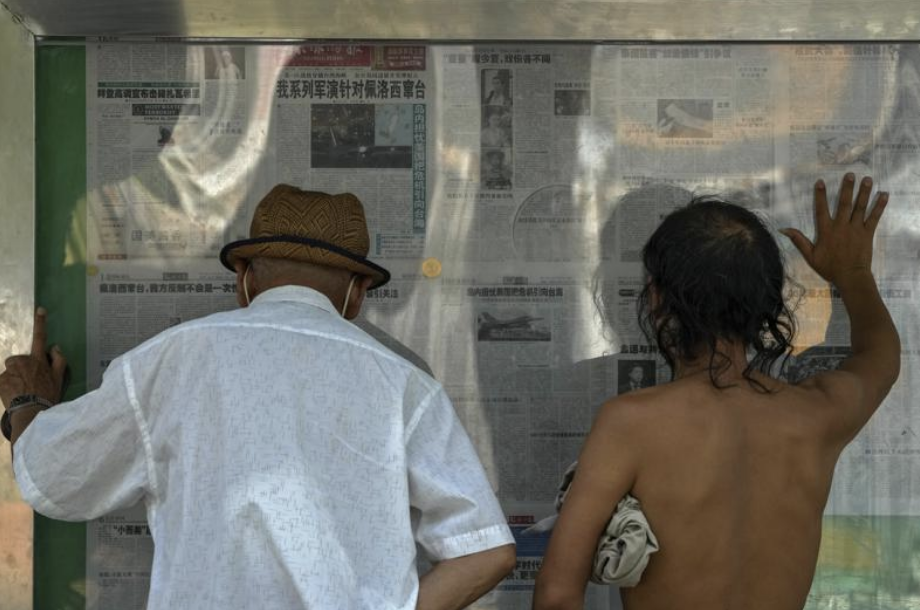World's Largest Chip Maker Suspends Production for Chinese Start-up Amid US Regulation
TSMC, Apple's chip manufacturing contractor, at its headquarters in Hsinchu, Taiwan. Photo: Lam Yik Fei/Bloomberg
On Saturday, October 22nd, TSMC (Taiwan Semiconductor Manufacturing Co.) announced that it has suspended all production for China-based Biren Technology to comply with recent US regulations banning US-based companies from exporting semiconductors used for AI to China, according to Bloomberg.
The decision is a response to Biren's optimistic announcement earlier this Friday, which concluded its artificial intelligence chips produced by TSMC would not be affected by the latest US export restrictions. The trading curbs prevent US-based companies from exporting AI products to China and have implications for relevant sectors to suspend collaboration with China-based companies to stall China's technology development. In the same public announcement, a representative from TSMC said the company will now comply with all relevant rules. The official suspension means TSMC has now cut its ties with the rising AI products designer in China.
Biren Technology's recent outperformance against traditional semiconductor giants such as Nvidia has likely led to the US's trading curbs and TSMC's decision. Biren Technology is one of China's most promising artificial intelligence chip developers. Its growing capabilities rival traditional graphic chip producers such as Nvidia Corp. In fact, one of the latest public information pointed out that Biren's products outperform A100 chips from NVidia Corp. Subsequently, Biren and its first-generation compute product BR100 have now been seen as a powerful contender against US companies by domestic consumers and government officials. The product can tackle the challenge of AI training and inference in the data center with better productivity and lower cost.
Not long after the conference Hot Chips 34, where the product was introduced by Biren's founder Lingjie Xu, Washington reportedly considered a countermeasure. On Oct. 7, the US announced the trading curbs. Under the semiconductor restriction, the US Commerce Department expects all companies to comply with the restriction and stop exporting advanced AI products to China. Nvidia has since halted its sales to China. The measure shows the government's intention to limit China's AI development and the military's subsequent access to forefront technology.
While TSMC has not directly concluded whether production for Biren triggers the trading restrictions, its decision to stop supplies to the Chinese startup indicates the Taiwan-based company's growing priority to side with the US amidst the Sino-American trading conflict. Moreover, despite CEO CC Wei's reassurance that TSMC "will continue to serve all customers around the world" in last week's earnings call, there have been several signs that TSMC is seeking to hedge its geopolitical risk and cut loose with China.
Chinese residents reading newspapers covering US House Speaker Nancy Pelosi's visit to Taiwan. Photo: Andy Wong/AP
This Wednesday, TSMC told Wall Street Journal that it considered expanding to full capacities in Japan after building factories subsidized by Tokyo. The Taiwanese semiconductor company is geopolitically risk-averse, and the potential expansion plan in Japan shifts TSMC's manufacturing capacities away from China-Taiwan tension. With US House Speaker Nancy Pelosi's recent visit to Taiwan, Apple chipmaker TSMC will continue reducing risk and maintaining profit by removing geographical proximity and political alliance with CCP.
The chip manufacturing and its geopolitical implications affect anything from iPhone production for consumer spending to military development aided by artificial intelligence. As the world's biggest chipmaker, TSMC's policy will play a critical role in US-China tension. Aside from the technology sector's development, the global economy's stability is also on the line. We will continue to see the tech manufacturer side with either superpower on each side of the pacific ocean. But before then, TSMC will be one of the largest hot spots to pay attention to.


